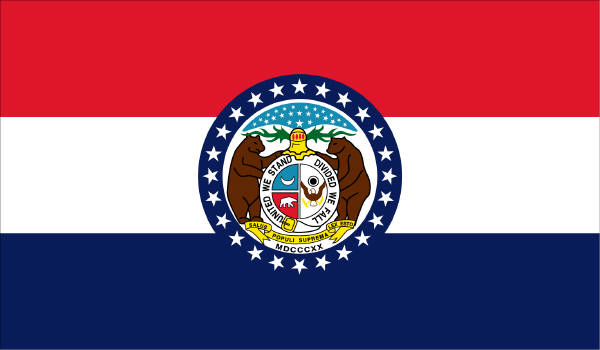On November 3, Missouri voters will decide on Amendment 1 and Amendment 3. Amendment 1 proposes limiting state executives to two terms. Amendment 3 would repeal provisions of a 2018 redistricting initiative and reinstate—with certain changes—a political redistricting commission. Missouri Amendment 2 of 2020, a Medicaid expansion initiative, was put on the ballot for the August primary election.
Amendment 1 would limit the lieutenant governor, secretary of state, state auditor, and attorney general to two terms of office in a lifetime. Missouri approved a ballot measure that enacted the same term limits for the governor in 1965 with 72.96% of the vote. Currently, Missouri is one of eight states to limit the governor to two terms in a lifetime. Thirty-six states have some type of term limit on the office of governor, and 14 states have no limit.
The following is a breakdown of the number of states with no term limits for state executive offices:
- 23 states do not limit the terms of lieutenant governors;
- 31 states do not limit the terms of secretaries of state;
- 33 states do not limit the terms of attorneys general;
- 13 states do not limit the terms of state treasurer; and
- 17 states do not limit the terms of state auditors (or equivalent positions).
The Missouri Legislature referred Amendment 1 to the ballot. The Senate approved it 31 to three. The House approved it 114 to 32. Missouri State Senator Tony Luetkemeyer (R), the sponsor of the measure, said, “The voters of Missouri have made it clear they emphatically support term limits. This measure will bring consistency to our term limits for all state officials and prevent them from becoming career politicians.”
The legislature also referred Amendment 3 to the ballot. The state Senate passed Amendment 3 in a vote of 22 to nine. All but one of the 23 Senate Republicans voted in favor of the amendment. All eight Democrats voted against it. The state House passed Amendment 3 in a vote of 98 to 56 with eight absent.
Amendment 3 would return the state to the use of bipartisan commissions—one for the Senate and one for the House—to draw district maps. The commissions would each have 20 members, rather than 18 and 10, respectively. Commissioners would be appointed by the governor from nominees provided by committees of the two largest political parties.
Amendment 3 would also allow the use of citizen voting-age population instead of total population for the census and redistricting process.
Amendment 3 would also eliminate the nonpartisan state demographer, which was created by the approval of Amendment 1 (2018), a citizen initiative referred to by supporters as “Clean Missouri.” Amendment 1 was approved with 62.02% of the vote.
In addition to changing the redistricting process, Amendment 1 added partisan fairness and competitiveness to the criteria used to draw district lines. Amendment 3 would require that equal population, voter rights abridgment, contiguous districts, and simple shapes are given higher priority than partisan fairness and competitiveness. It would also increase the percentage of wasted votes allowed in the calculation of minimum partisan fairness.
Amendment 1 (2018) required legislators and legislative employees to wait two years after the conclusion of the legislative session in which the legislator or employee served to become a paid lobbyist and prohibited legislators and legislative employees from accepting gifts from paid lobbyists in excess of $5. Amendment 3 would change this amount to $0.
Amendment 3 would also lower the campaign contribution limit for state Senate campaigns from $2,500, which was set by Amendment 1, to $2,400.
State Senator Dan Hegeman (R), the sponsor of the amendment, said, “It is my great concern that our communities will find their voices diminished in Jefferson City (in the state Legislature), because of the liberal think tank ideas contained in the criteria of Amendment 1, passed in 2018.”
The campaign in support of Amendment 3 is sponsored by Fair Missouri, which has reported $246,669 in contributions.
Clean Missouri is registered in opposition to the measure and reported $4.1 million in contributions. The top donors to the committee were the National Education Association ($1.5 million), the North Fund ($1.2 million), and the Action Now Initiative ($1.1 million).
In a letter to the state auditor, St. Louis Mayor Lyda Krewson (D) said, “[Amendment 3] would have a significant fiscal impact on local governments and small businesses in Missouri if the population standard for state legislative maps is changed from using total population to a citizen voting-age population or eligible voter standard. … We should expect a significant impact on Missouri’s small businesses, the local economy, local sales taxes, local lodging taxes, and state income taxes if maps are drawn in a discriminatory way that disproportionately impacts Missourians of color.”
Missouri modified its absentee/mail-in voting procedures for the November 3 election to allow any registered voter to cast an absentee ballot (subject to a notarization requirement) in the general election. Requests to vote absentee must be received by 5:00 p.m. on October 21. Absentee ballots must be received by election authorities by 7:00 p.m. on November 3. Polls will be open from 6:00 a.m. to 7:00 p.m. on election day.
Additional reading:
Missouri Amendment 1, State Executive Term Limits Amendment (2020)


